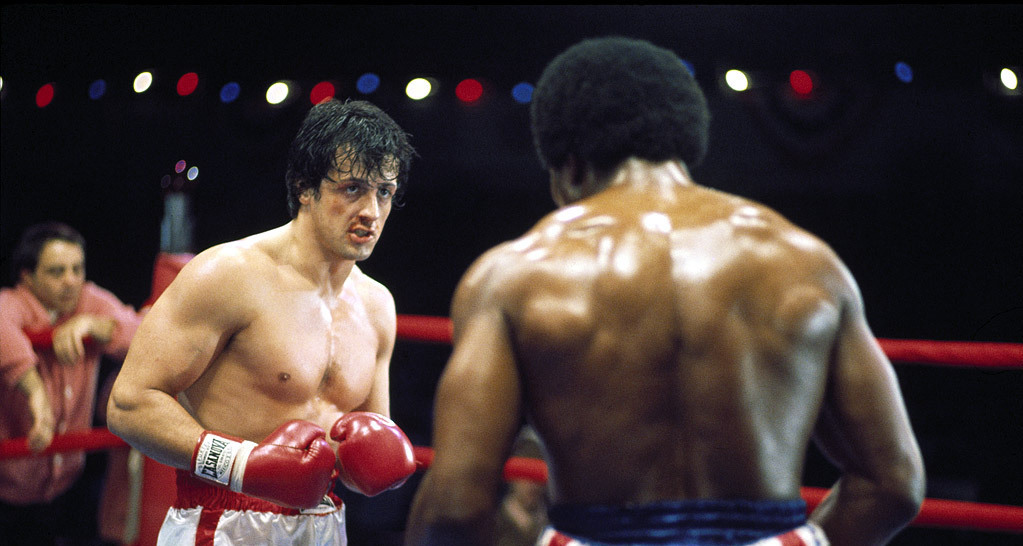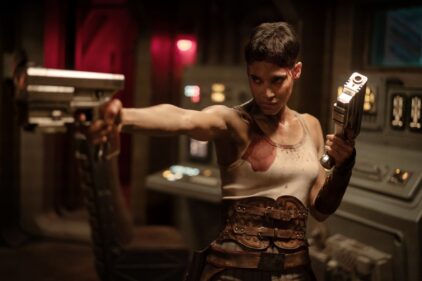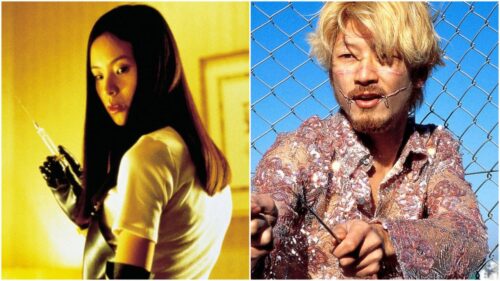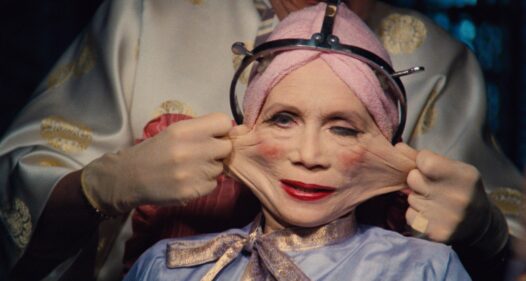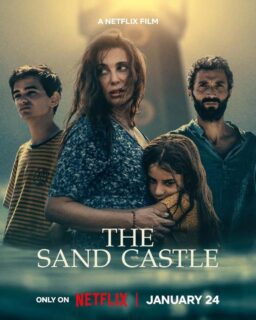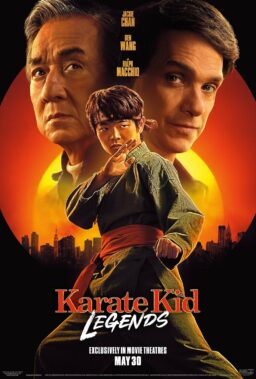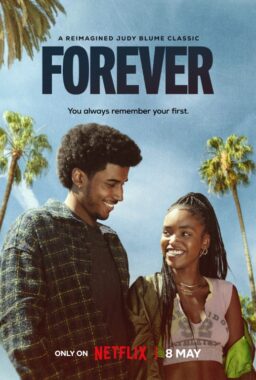The point of a music score is to illustrate what’s going on in a character’s head and in their heart. This is why when we hear Bernard Herrmann’s “Psycho” strings we immediately feel panic; when we listen to Ennio Morricone’s harmonica strains from “Once Upon A Time In The West,” we feel the tension of an approaching gunfight. And when we hear Bill Conti‘s stirring theme from “Rocky” we feel passion, we feel inspiration, and the confidence to beat the odds. To go the distance.
Rocky’s theme is subtitled “Gonna Fly Now,” a result of adding lyrics to the theme for the big training sequence, the first of many montages across the eight films in the series including, the latest, “Creed II.” The franchise has long been criticized for being formulaic, and while that’s not especially incorrect, what’s interesting is that perhaps the most predictable moment in the films—the appearance of “Gonna Fly Now”—is the one most look forward to. Responsible for the “Rocky” theme and score is American composer Bill Conti, whose other famous works include the score and song for James Bond adventure “For Your Eyes Only” and the classic theme tunes to TV’s “Dynasty” and “Cagney & Lacey.”
The thing about “Rocky,” despite its sequels, is that it’s a love story. I mean sure, it’s about a bum who gets his shot, and about proving that he can belong, but at the end of the movie he’s crying out for Adrian because, despite what he managed to do, she’s the only thing that matters to him. Rocky spent the rest of the films just being a boxer, but before that he was working as a heavy for a loan shark. Conti knew that. “Here is a movie that is about a loser,” he told ABC10 News in 2012.
“I read the script, I know how it ends. He loses.” Conti wrote three other thematic pieces aside from the main theme, a brass fanfare (“We were talking about what heroic music is, and I hear brass and I hear loud when it’s time to go into battle”), a driving cue for the eventual fight scene called “Going The Distance,” and the dramatic finale “The Final Bell.” But the film—and series—would be defined by “Gonna Fly Now,” especially that montage.
“In the tenth reel,” Conti continued, “he gets to train for a big fight, and we want to manipulate the audience to think that he can win. So I had the fanfare at the beginning and then the theme which is very sad, because this guy’s a loser. So I said ‘let’s make it peppy and fast and give him some inspiration.'”
Arguably as powerful, however, is “The Final Bell,” the cue that plays as the fight ends and Rocky is searching the ring for Adrian. It’s a cathartic piece both for the character and the audience and it’s a pure emotional outpouring and one of the most powerful pieces of film music ever composed. “Music that moved people is the kind of music I wanted to write,” Conti told GNT in 2002 “and the music seemed to affect people … I know that from reactions in letters that I’ve received that it helped people emotionally.”
So moving and stirring is the music from “Rocky” that it’s still being used today, albeit in more of a cameo role, but no less important. Of the five “Rocky” sequels that followed between 1979 and 2006, along with two “Creed” films, only three weren’t scored by Conti—1985’s “Rocky IV,” which had an electronic score by synth specialist Vince DiCola, and “Creed” and “Creed II” by Swedish composer Ludwig Göransson. Even so, Conti’s themes percolate throughout, whether it’s for Rocky climbing a Siberian mountain or Adonis Creed versus Drago, Jr. The only film to deviate from the set formula of the scores was 1990’s “Rocky V,” which featured hip-hop tracks and used “Gonna Fly Now” in the finale, replacing “The Final Bell.”
For better or for worse, the training montages are a crucial part of the “Rocky” formula and something audiences have come to expect from the films. One of the most indelible images of “Rocky” is the sight of Stallone increasing his running speed as he runs along the docks, huge ships in the background that contain the kind of power he’s channeling, all while DeEtta Little and Nelson Pigford’s vocals ring in the ether (“Feeling strong now, won’t be long now”). As Rocky runs up the famous steps of the Philadelphia Museum of Art, Conti’s strings and trumpets climb and climb and push him up to the top, the camera circling around until it stands directly behind him as he throws his arms up to “Gonna fly now!”, the first part of his journey now complete. The sequence and the song are designed to instill belief in the character and his quest, and it does that perfectly.
The training montage in “Rocky II” goes for a different tack, using “Going The Distance” and “The Final Bell” over scenes of the boxer training in the gym before returning to “Gonna Fly Now” for a repeat of the run through the city, this time followed by a flock of children, the chorus in the song now performed by children. “Rocky III” features scenes of Rocky and Apollo Creed training in the latter’s LA gym as well as racing each other, scored by another new arrangement with more adult vocals, the montage climaxing with Rocky beating Creed on a California beach, replacing the run up the steps. “Rocky IV” features several montages, but the big training sequence is scored by two specific pieces: first a driving synth melody for the techno-wizardry of Ivan Drago’s training and later the John Cafferty track “Hearts on Fire” for Rocky’s final preparations, with the steps being replaced by a Siberian mountain. The score for the final conquest of the peak returns to DiCola’s electronics with a short instrumental interpolation of “Gonna Fly Now,” the composer understanding not even he can take away that moment from the series.
However, even this was dropped for “Rocky V,” with the track “Go For It (Heart and Fire)” over the training montage. Luckily “Rocky Balboa” restored balance, using the original “Gonna Fly Now” as an older and slower Rocky concentrates more on lifting weights and landing punches with the up-the-steps climax used for the hauling of an enormous barbell together with Rocky leading Punchy the dog to the top of the museum as snow falls around them.
For the “Creed” films, the focus changes and skips both forwards and backwards, where Rocky is no longer the protagonist; instead it’s Apollo’s son Adonis. However, the relationship in the films between music and the characters still remains, with Göransson using the same framework as Conti’s original score, with a more contemporary jazz feel, but without relying on the previous themes as a crutch. “Ryan [Coogler, director of “Creed] and I had always talked about making a score that is really original, the composer told Awards Circuit in 2015 “not just use the old themes over and over. I wanted to create a new musical theme for Adonis, like Conti created for Rocky. I started to write music for the film with that in mind. If it was the opposite, if the goal was to repurpose all the old stuff over and over, that would have been difficult. But Ryan wanted to make something new. There was no pressure. No one said ‘you have to use ‘Gonna Fly Now’ here,’ or ‘use ‘Eye of the Tiger’ here.”
Instead Göransson created a more sensitive melody for Adonis, much like Conti’s original use of Rocky’s theme, and then built that up until it was used, like Conti’s, in full force for the training montage. In fact, during that sequence the theme includes gospel vocals (“Fighting hard, fighting strong”) as Adonis reaches his own goal, echoing “Rocky” and its legacy but putting its on spin on the mythology, trying to create its own. It’s only in the final fight, where Göransson has spent most of the time using the Adonis theme and low electronics, that the saga returns to its musical roots, not just as a final push but because this is about family and bloodlines. This is Rocky’s fight as well, and from his friendship with Apollo, so it makes sense that when Adonis goes back for the final round, that Conti fanfare kicks in gloriously, followed by “Going The Distance.” It’s also Adonis echoing Rocky’s original journey, the no-hoper against the champ.
It’s the reminder that we’re celebrating someone who went the distance, who did what they set out to do, to prove to themselves and everyone else that they could do it. And musically, there’s only one theme that can underscore that. “I took that original Conti ‘Rocky’ number,” Göransson said, “and slowed it down, made it grittier, more edgy. I put it in a minor chord. That was how the Final Fight musical cue played in the movie for months. Ryan and I agreed that I should go back, make the final cue big and brash, bring it back to the major key it was originally in and basically give the audience what they want. It makes sense when you have Rocky himself in the movie playing a huge role, to use some of the Rocky music. And frankly, it was for the better to use it when we did in the final fight. It doesn’t feel like you’re calling back or that you’re in a different world. It’s seamless.”
In “Creed II,” Göransson uses the theme sparingly again, bringing in the fanfare and elements of “Gonna Fly Now” and “Going The Distance” when Adonis knocks down Drago. And yet again, to make the echo complete, “The Final Bell” plays with force as the fights end, reminding us how devastatingly powerful Conti’s music still is, 42 years later.
